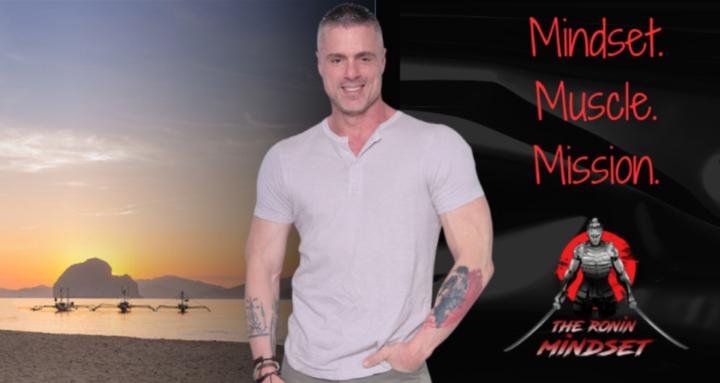
Write something
You're Eating Healthy.... Right??
When I work with people, it's kind of funny, because everyone will say that they eat pretty healthy. Until you ask them to start tracking, to write it all down. That tells a much different story... The overwhelming majority of people (90%+) underestimate the amount of calories they eat by 30%-50%. Calories count. The amount of protein counts. You cannot manage what you don't measure.
BCAAs... Hype Job or Waste of $$ ?
It's always the extremes, right? One side saying BCAAs are amazing and one side saying that they are a colossal waste of cash and that you're literally pissing your hard earned money down the drain. As with anything, it really depends on your expectations. If you are looking for BCAAs to help build tons of muscle or shred fat off your body, well... you're going to be disappointed. There are a myriad of other things that are much better and much cheaper to accomplish those goals. So in that way, they are pretty much worthless. But... if you struggle drinking enough water each day, BCAAs can flavor the water you drink and make it MUCH easier to drink a gallon or more a day. Personally, it's a difficult task for me to drink the 1.5 gallons of water that I have as part of my nutrition plan. So I use the BCAAs every single day. Gets me a little extra protein in, which never hurts, and some additional electrolytes to help with true hydration after sweating it out in the gym. And it makes the task of drinking that amount of water so much easier. So for me, they are worth every penny. But again, it's all what you are looking to achieve by using them. What are your thoughts? Anybody else here use BCAAs?
2
0
Eat the Damn Eggs
For years, they told us whole eggs were bad. Too much cholesterol. Too much fat. Dangerous for your heart. Blah, blah, blah. Remember? Turns out, that was total bullshit... Just like the Food Pyramid. Whole eggs are one of the most nutrient dense foods you can eat, packed with protein, healthy fats, choline, B vitamins, and amino acids your body needs for muscle growth and hormone health. The yolk isn’t the enemy - it’s the gold. Nature built a perfect food. Eat the damn eggs.
Protein, yes... but How Much and When?
We obviously know protein is important. Without it, you don't build or repair muscle. The question is: How can we maximize the amount of muscle we gain from intense workouts in the gym? And you may unknowingly be leaving the majority of your possible muscle gains on the table, just because you aren't getting the right amounts of protein at the right times. You may even know that you should be getting a minimum of 1 g of protein per pound of bodyweight, but how you get it is equally as important. Muscle Protein Synthesis is triggered when blood Leucine (an amino acid) levels pass about 2.5 grams - which is equal to about 35-40 g of complete protein. If you don't get at least that much protein in a meal, the muscle growth switch is never really flipped on. The best sources of protein - as you can probably guess - are animal based proteins. Beef, eggs, fish, chicken breasts and why protein. Plant proteins? Eh... not so much. Which is why most vegans look like they have some sort of wasting disease. Also, each meal you eat reactivates the anabolic signal - that means that one giant meal isn't going to be that productive in terms of muscle gain. 3-5 meals per day is key. So if you are a 160 lb man eating the minimum recommended amount, and you could do 3 meals with 54 g of protein, or 4 meals with 40 g each. If you do 5 meals, you'll still need to get at least 40 g of protein each, so you're daily protein intake would move to 200 g. Which is fine. It isn't too much, as long as your total calorie count stays in range. I personally eat 325 g of protein a day - spread between 5 meals, so that's 65 g each meal. Lots of whey protein, chicken breasts and lean red meat. I just adjust my carbs to change my overall calorie intake to make sure I'm on track to either lose or gain weight, whatever my goal is. Protein minimum stays the same either way, cutting or bulking. 💪
4
0

You CAN'T Out Train a Bad Diet
We've all heard it before... Abs are made in the kitchen, right? Catchy phrases, to be sure... But what does it mean in actual day-to-day life? Let's put things in perspective... a Whopper from Burger King is 790 calories. No fries, no soda, just the burger. You can eat that pretty easily in 5-10 minutes. To burn off those calories you just put in your system in 5 minutes, the average size man would have to jog at a moderate pace for 1 hour and 40 minutes. Equating your food intake to the hours you would have to spend on a treadmill will shift your attitude towards what you eat in a hurry. It did with me... How does that change your perspective? Drop it in the comments below!

1-12 of 12
powered by

skool.com/ronin-fitness-and-mindset-7940
FITNESS for MEN 40+ Reinvention through fitness. Muscle, mindset, mission - for men 40+ ready to lead their next chapter. We're just getting started!
Suggested communities
Powered by
